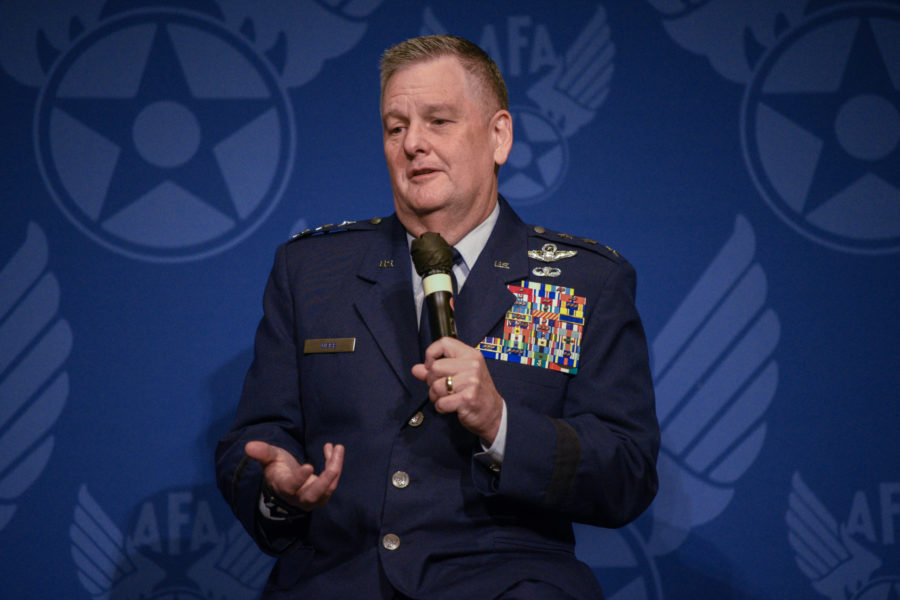Air Force leaders have spoken extensively over the past few years about their desire to empower Airmen to be multi-capable, training them through Agile Combat Employment exercises to operate in small groups in austere locations, using broader skillsets to do whatever is necessary.
What exactly that means for Air Force Speciality Codes, however, is still being debated, Lt. Gen. Marshall B. “Brad” Webb, head of Air Education and Training Command, said Sept. 22 at AFA’s Air, Space & Cyber Conference.
“The jury’s still out on that,” Webb said when asked in a panel discussion if the service planned to start combining AFSCs for multi-capable Airmen. “We’re split really, even at the senior levels of the Air Force, on how we’re going to proceed.”
On one hand, Webb said, some skills need a person dedicated and trained specifically to do that job, and therefore a combined AFSC wouldn’t make sense. On the other, though, certain skills can apply to different competencies, Webb said, and could “leapfrog” across AFSCs.
While senior leaders debate the approach and definitions that will undergird the system, Webb offered a prediction for the near future.
“I think we’re gonna see it, at least in these early stages, play out episodically and differently across AFSCs, just like Agile Combat Employment and multi-capable Airmen definitions are playing out differently in the theaters as well,” Webb said.
Webb was also asked how the Air Force plans to develop top-notch “software developers, data scientists, and AI engineers” to go along with pilots and maintainers, and he pointed to changes in speciality codes as part of that shifting focus.
“Probably we will see AFSC migration to some extent towards the things that make sense in a digital Air Force,” Webb said. “And I mean that departmentwide, where we don’t have the exact same AFSC linkage that we have today going forward.”
Regardless of how AFSCs look in the future, Webb added, competencies will continue to be the foundation of Chief of Staff Gen. Charles Q. Brown Jr.’s push to “empower Airmen.”
“The essence of empowering our people—there’s one little caveat that you have to have up front so that you don’t have ‘Lord of the Flies,’ and that is competence,” Webb said. “And so these competencies, whether they’re foundational competencies or occupational competencies, become very important.”
Foundational competencies, in particular, are key to crafting a new force, Webb said—one that can compete with China and Russia.
“At some point … we have to get to what is foundational. What is common to this approach, this agility of mindset, this understanding mission-type orders, being able to understand that you’re empowered to go out and you get after it, becomes very important,” Webb said. “These are the kinds of skills when I talk about foundational competencies that we’re focused on from the very get-go—Basic Military Training through technical training.”
Indeed, ensuring every Airman possesses core competencies and is empowered to make decisions is how the U.S. cannot just compete but separate itself from China, Webb said.
“When you look at China, in particular, with all its focus on space, cyberspace, hypersonics, developing their military … they could do that because they have a very authoritarian regime and not a lot of friction,” Webb said. “They fundamentally do not trust their people. The difference in America, and certainly the United States Air Force, is that we do trust our people.”
